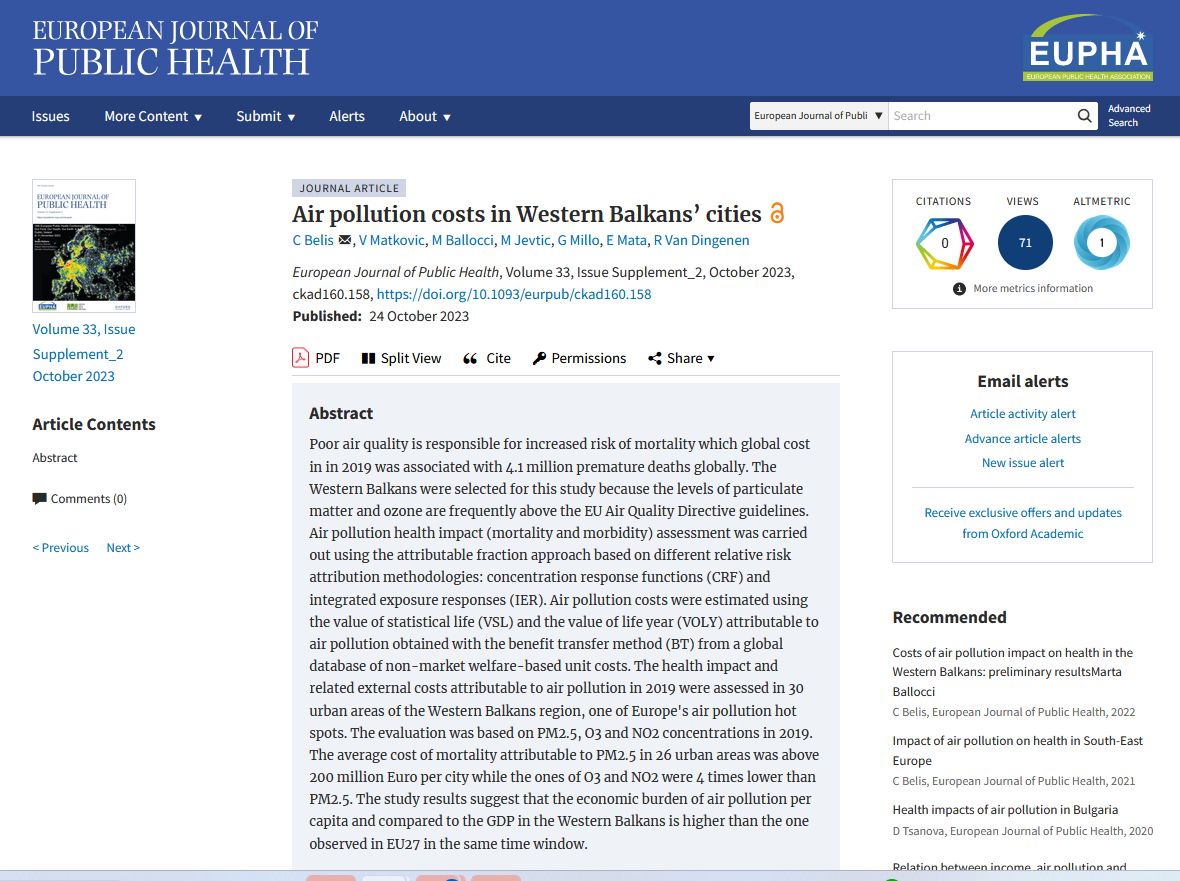This JRC study, published 2023, provides detailed quantitative information about the levels of air pollution their sources, their impacts and their costs in Western Balkans cities. Such detailed quantitative information is intended to support national and local authorities to take informed decisions in the design of pollution abatement strategies. The study also supports the implementation of the EU acquis which is necessary for the process of accessing the EU 27.
The study on the health impact of air quality and related economic burden in the Western Balkans provides additional evidence about the benefits that may derive from making further progress in the implementation of the Green Agenda for the Western Balkans by taking advantage of the support from the Energy Community, and resources available from the Western Balkans Investment Framework, in the areas of energy production, buildings’ energy performance and promotion of renewable energy sources.
I can pave the way for closer regional cooperation on the fight against air pollution and enhancement of the Western Balkan economies’ science for policy interface in this area.
Abstract
Poor air quality is responsible for increased risk of mortality which global cost in in 2019 was associated with 4.1 million premature deaths globally. The Western Balkans were selected for this study because the levels of particulate matter and ozone are frequently above the EU Air Quality Directive guidelines. Air pollution health impact (mortality and morbidity) assessment was carried out using the attributable fraction approach based on different relative risk attribution methodologies: concentration response functions (CRF) and integrated exposure responses (IER). Air pollution costs were estimated using the value of statistical life (VSL) and the value of life year (VOLY) attributable to air pollution obtained with the benefit transfer method (BT) from a global database of non-market welfare-based unit costs. The health impact and related external costs attributable to air pollution in 2019 were assessed in 30 urban areas of the Western Balkans region, one of Europe’s air pollution hot spots. The evaluation was based on PM2.5, O3 and NO2 concentrations in 2019. The average cost of mortality attributable to PM2.5 in 26 urban areas was above 200 million Euro per city while the ones of O3 and NO2 were 4 times lower than PM2.5. The study results suggest that the economic burden of air pollution per capita and compared to the GDP in the Western Balkans is higher than the one observed in EU27 in the same time window.
To access the study, please visit https://academic.oup.com/eurpub/article/33/Supplement_2/ckad160.158/7328511

